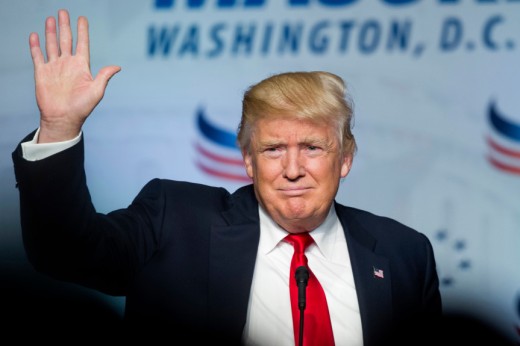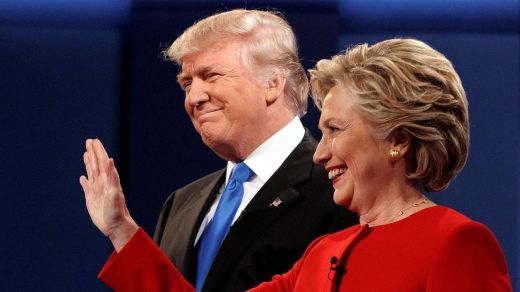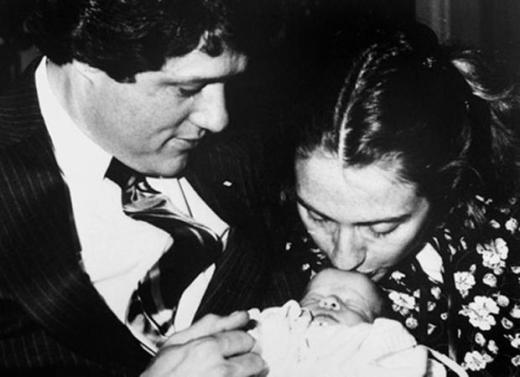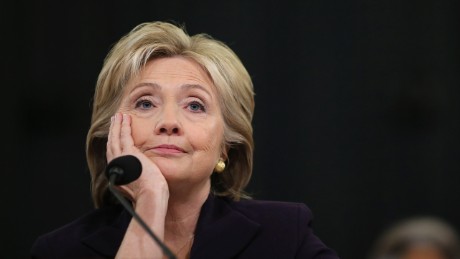The president of the United States of America is selected by the electoral college after the public is given an opportunity to voice and then vote for their choice every four years. In American politics, the scene is mostly dominated by two parties, the Republicans or Grand Old Party (GOP) and the Democrats which is the Democratic Party. Each of these two political parties have had opposing as well as familiar and similar political, economic and societal policy making strategies and views. The split in parties is due primarily to how the general population and voting population’s attitudes, morals, and whether the voters are informed of the constant changes taking place politically, economically, and culturally will affect their livelihoods, finances, and relationships with their communities. Much is debated about if the two-different leading political parties are any better or fair any worse when considering how their agenda’s will be perceived and lobbied for by the public policy makers and voters. The second half of the twentieth-century was composed of several decades that bore witness, sometimes in the worst and tragic ways and situations, to the eventful changing political landscape tackling many controversial cultural and societal matters considered either important or fervently not necessary. The tables were being stacked against entire communities and their ways and views of life. In the midst of the generational chaos of the 1970’s were two presidential elections. The first of the two elections was in 1972 between the then sitting Republican Party’s President Richard Nixon and his challenger who was representing the Democratic Party George McGovern. As history portrays, Nixon was the victor and began paving the way into some of the most contested and politically damaging years ever experienced by the Grand Old Party. Watergate. Nixon within the first year of his second term became the only sitting United States President to resign from the highest electable position in the country which began the ushering in of new presidential leadership. This process is outlined in the United States Constitution and allows for the acting vice-president to ascend to the Oval Office as President. This was also an event effected by controversy and never before experienced because Nixon’s vice president himself was replaced shortly after Nixon’s re-election and replaced by a conservative named Gerald Ford. Then once Nixon resigned, Gerald Ford again ascended his leadership, but this time to the supremely coveted office of the President, becoming and remaining the only United States President to serve as president without ever being elected to the office. While all this unfolded, there was a Democratic Governor from Georgia who was silently waiting to make his move. This man was Jimmy Carter. The country by the time 1976 arrived was fed up with politician’s knee-jerking their morals, economy, and country’s national perception thus making way for a most non-stimulating election between the seated President Ford and hopeful Carter.
The 1976 Presidential Election in the United States of America was not without controversy. The Republican party’s nominee, Gerald Ford who was the present President was running against an almost unknown Jimmy Carter. America was ready for a change. America was reaching a rather undramatic time in history where the public wanted a leader. A President that would uphold and defend America’s beliefs and wants. This election was a popularity contest, as most campaigns are. The strategies of the two nominees each had their personal and political commitments and values presentable in a manner that created not much difference. The argument is that the results of the 1976 Presidential Election in the United States, which was Jimmy Carter winning, could not have been different had either candidate made more invested decisions and commitments to upholding what the American people desperately sought which were guidance, effective leadership, and honesty.
Gerald Ford was seeking to become the first President of the United States to win an election for the first time to remain the American people’s president. In history, this had never happened. Ford had many hurdles to overcome. The largest and most controversial of those being the scandal that so prominently allowed him to become president in the first place. Of course, this scandal was Watergate. Had the scandal never occurred, the policy of the Republican Party most likely would have been Nixon’s in a re-election bid for the 1976 election. That is not how history played out though. Instead Ford was now seeking to keep his post as President by beating Jimmy Carter, the Governor of Georgia by winning the popular and electoral voters over. Jimmy Carter so happened to have the same agenda. In 1976, Carter merely needed to out campaign Ford to ensure victory. Thus, the election was a popularity contest that Ford could not afford to lose, be it though he did indeed lose the election and his office at the White House. One of the most significant reasons for Ford losing happened to be something the American people wanted most from our most powerful and influential leader of the free-world which was honesty and David Miles confirms this suggestion when he said “Nixon played a particularly important role”[1] when it came to how the voters understood and interpreted Ford’s campaign which could not distance itself far enough away in the minds of voters who had “distrust of government.”[2] Ford may have had a political edge over Carter but that was a major factor that was just as major of a set-back as it was an advantage with Miles confirming this argument when he stated “Ford’s experience” created a connection to the ineffective leadership of the previous presidents governing abilities to the result that “hurt his chances of reelection”[3] leading to Carter’s successful winning the popularity contest of that presidential election. The American people needed a leader in Ford. As much that Ford wanted to remain that leader, David Miles believed that because he was unable to transfer the voter’s attention away from “the difficulties that he had overcome”[4] was an inseparable bond to the unsettling “Washington political establishment”[5] and “the [Richard] Nixon administration.”[6] Jimmy Carter proved to be the man that the American people wanted because of Ford’s lack of public accepted separation from the dishonest, failed leadership, and guidance from when Richard Nixon ran the country.
“America was reaching a rather undramatic time in history where the public wanted a leader.”
Jimmy Carter affected the 1976 election’s voters wants and needs more effectively than Gerald Ford. Carter was a state politician from the deep south. Carter as described by James Wooten as “not entirely unacceptable as a Presidential candidate”[7] adds confirmation to the argument presented that carter was the better contender at outperforming and winning over the voters in the 1976 popularity contested election against Gerald Ford, the then current President of The United States of America. This is then confirmed by David Rosenbaum when he wrote of Carter saying “he seems…to satisfy the greatest possible number voters”[8] which he then attests to one of the most important wants and needs of the American people which Carter conveyed and carried being “his own trust-worthiness and credibility.”[9] Carter was unknown to most of the country which was his greatest asset compared to Gerald Ford who was perceived by the American voters as being too known and linked to his predecessor. The needs of and honest, effective leader and politician exist in all governments. And in 1976 there was nothing Ford could have done to beat Carter. Carter’s greatest leap was as Leslie Gelb said, “he will have to prove himself”[10] and that is just what he ended up doing and in the process Carter did it better than his republican presidential opponent Ford. There were many arguments presented for why Jimmy Carter was able to pull away with the win in the 1976 popularity contest and election against Gerald Ford after the election was decided by the electoral college after the public poles made their choices also.
There were many post mortem analyses of the 1976 Presidential election that pitted Democrat Jimmy Ford against acting Republican President Gerald Ford that agree in their arguments that the country chose Jimmy Carter over Gerald Ford because of the wants and fervent needs for honesty, guidance, and effective leadership. The argument is reiterated by an article in the New York Times which stated Americans were “against the politics of deceit”[11] and with Carter winning the highest electable American office he brought along with him “a clear mandate to make the American people once again the confidants of their elected leaders.”[12] Carter was chosen by the majority of the country because he offered the brightest light of hope in a dark time in American politics never experienced before this rare election in 1976. Tom Wicker agrees with this theme and had to say pertaining to voter turnout that “In the popular vote”[13] Ford lost because “[Carter] won a clear majority.”[14] Not only did Carter win the trust of the American public and electoral college through being unknown enough in contrast to Ford being too caught up in the negative views of Watergate, but Warren Weaver insist that a new “campaign law”[15] which resulted from “the Watergate scandals”[16] did have a more than expected “profound impact”[17] with the voters. The post mortem analyses offered here align with the argument presented.
The argument made was that the results of the 1976 Presidential Election between President Ford and his Democratic nominee opponent Jimmy Carter in the United States, which was Jimmy Carter winning, could not have been different even if the candidate had made more committed decisions and investments to upholding what the voting American people blatantly sought which were guidance, effective leadership, and honesty. The causes of this result presented were Gerald Ford being incapable of extensively separating himself from the failed and embarrassing presidency of his predecessor Richard Nixon. The post mortem analyses reviewed for this argument agreed fully that Carter succeeded because he was more of what the population wanted because of his honesty and willingness to be different from the Republican leadership of his opponent Ford’s presidency and of the Richard Nixon Watergate scandal that happened to cause the first ever presidential resignation and the first time ever that a President ascended to the highest office not through the polls rather through law presented in a constitutional amendment. 1976 was though a close election. The American people after decades of dealing with and tolerating an extreme level of dissatisfaction from Republican politicians and their Republican leadership decided to take a leap of faith so to say and appoint through public voting polls and thankfully the electoral college as well to choose an unknown and at the start of his campaign an unpopular Democratic Governor from the southern state of Georgia, Jimmy Carter. This 1976 election set the course for a shift in American politics that forever changed how nominees campaigned and accepted the office of President of the United States of America.
[1] Miles, David. “Political Experience and Anti-Big Government: The Making and Breaking of Themes in Gerald Ford’s 1976 Presidential Campaign.” Michigan Historical Review 23, no. 1 (1997): 105-122. doi: 10.2307/20173633.
[2] (Miles, Political, 108.)
[3] (Miles, Political, 116.)
[4] (Miles, Political, 117.)
[5] (Miles, Political, 117.)
[6] (Miles, Political, 117.)
[7] By James T. 1976. “The Well-Planned Enigma of Jimmy Carter.” New York Times (1923-Current File), Jun 06, 195. http://ezproxy.latech.edu:2048/docview/122963601?accountid=26342.
[8] By David Rosenbaum Special to The New York Times. “Carter’s Position on Issues Designed for Wide Appeal.” New York Times (1923-Current File), Jun 11, 1976. http://ezproxy.latech.edu:2048/docview/122957458?accountid=26342.
[9] (Rosenbaum, Carter, 45.)
[10] By LESLIE H GELB Special to The New York Times. 1976. “Carter’s Foreign Views Fit Liberal Democratic Mold.” New York Times (1923-Current File), Jul 07, 69. http://ezproxy.latech.edu:2048/docview/122913884?accountid=26342
[11] “The View from the White House.” 1976. New York Times (1923-Current File), Nov 04, 38. http://ezproxy.latech.edu:2048/docview/122929312?accountid=26342.
[12] (The view, 38.)
[13] By, Tom Wicker. 1976. “Mr. Carter’s Mandate.” New York Times (1923-Current File), Nov 07, 1. http://ezproxy.latech.edu:2048/docview/122671395?accountid=26342.
[14] (Wicker, Mr. Carter’s, E17.)
[15] By WARREN WEAVER Jr Special to The New York Times. 1976. “Experts Say New Campaign Law had Major Impact on ’76 Election.” New York Times (1923-Current File), Nov 12, 42. http://ezproxy.latech.edu:2048/docview/122774712?accountid=26342.
[16] (Weaver, Experts, 42.)
[17] (Weaver, Experts, 42.)




